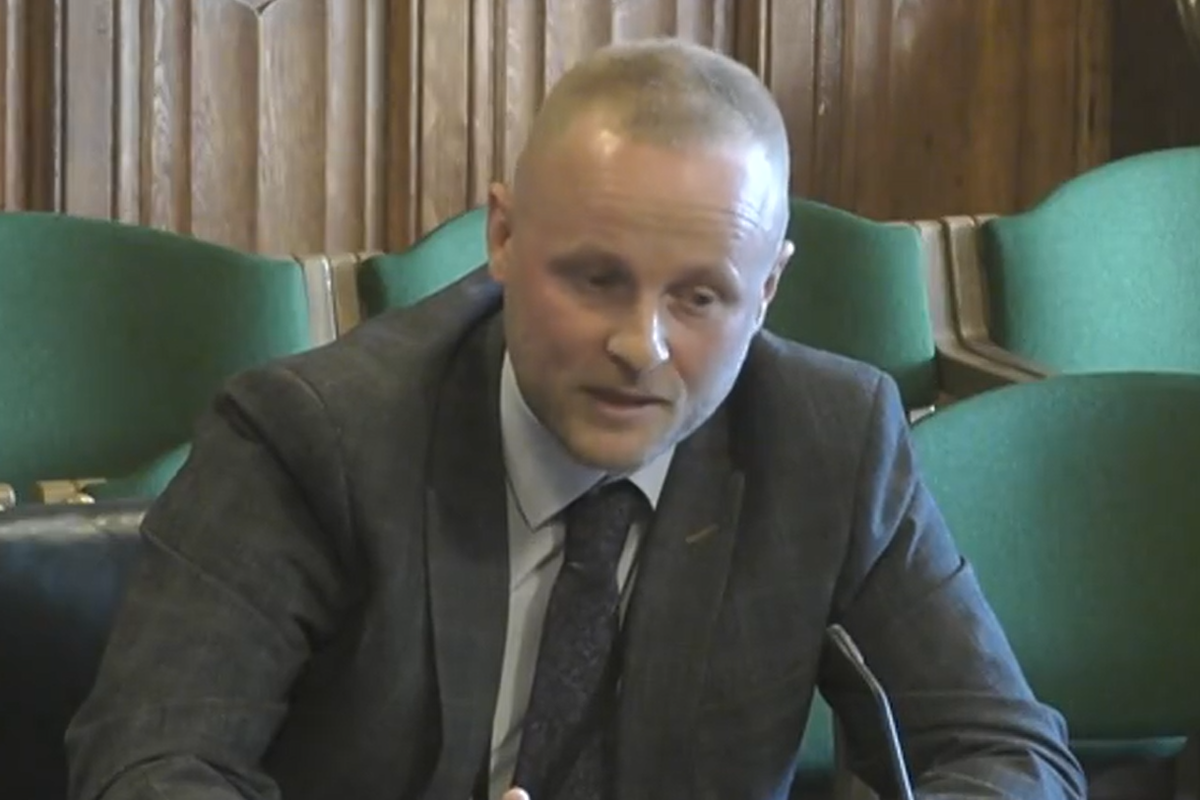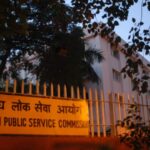There was a hardening of opinion inside loyalist communities in Northern Eire in opposition to the Irish Sea buying and selling border, with many younger individuals “non-political options”, MPs have been informed.
Loyalist activist Jamie Bryson informed the Northern Eire Affairs Committee he was frightened that the method of transition of paramilitary teams in direction of civilianisation had halted whereas issues over post-Brexit buying and selling preparations remained.
Giving proof because the director of Northern Eire Coverage on the Centre for the Union, Mr Bryson mentioned paramilitary leaders had informed him that younger loyalists had been “beating their doorways down” wanting to affix the battle in opposition to the Irish Sea border.
The committee is investigating the impact of paramilitary exercise and organised crime on society in Northern Eire.
Powersharing in Northern Eire has not been working for over 18 months as a part of a DUP protest on the inner UK commerce limitations created by Brexit’s Northern Eire Protocol.
The occasion says the Windsor Framework deal struck by the EU and UK to reform the protocol doesn’t sufficiently deal with its issues and has made it clear it won’t settle for a return to devolution till the Authorities supplies additional assurances, by the use of laws, over Northern Eire’s place within the UK inner market.
Talks between the DUP and Authorities have been ongoing over the summer season.
One of many primary components of the framework – the inexperienced/purple lane system for the motion of products – grew to become operational at Northern Eire ports earlier this month.
Younger loyalists are very, very offended and plenty of of them are non-political options
Jamie Bryson
Mr Bryson informed the committee there needed to be the “right political context” for loyalist paramilitary organisations to transition in direction of civilianisation.
He mentioned: “I feel the method of transition and civilianisation is halted and is unable to progress as long as the political context stays as it’s.”
He added: “I battle to see how these organisations can progress. The leaders of these organisations want to have the ability to say to their members, ‘The Union is secure. The ensures we signed as much as in 1994 and 1998 are nonetheless in place.
“They will’t try this whereas the protocol and framework stays.”
Committee chairman Simon Hoare requested Mr Bryson what his worst concern was about how these issues would manifest themselves on the streets of Northern Eire.
Mr Byson mentioned he didn’t need to whip up stress however opinion is hardening in loyalist communities.
He mentioned: “All protests needs to be peaceable and lawful always.”
Mr Bryson added: “There may be important anger in working class loyalist communities and in the intervening time the valve for that anger is the political motion which the DUP have taken, they usually have large assist for that.
“I’m frightened that if we don’t get an answer to this challenge that we may see the progress which has been made, and which all of us need to preserve, going backwards and a brand new technology of younger loyalists taking a course which I don’t assume they should take.
“Younger loyalists are very, very offended and plenty of of them are non-political options and many people are working to discourage that and discover a political means ahead.
“There must be an answer which offers with the very actual issues and points.”
DUP committee member Carla Lockhart requested if the Irish Sea border had had an influence on recruitment for loyalist paramilitary teams and if it made transition harder.
Mr Bryson mentioned: “In brief, sure and sure.
“Senior leaders within the paramilitary organisations informed me that younger lads have been beating their doorways down wanting to affix the organisations to battle in opposition to the Irish Sea border.
“These organisations didn’t go on a recruitment drive they usually put these younger lads down the trail of peaceable protest, politics and discouraged violence.”









